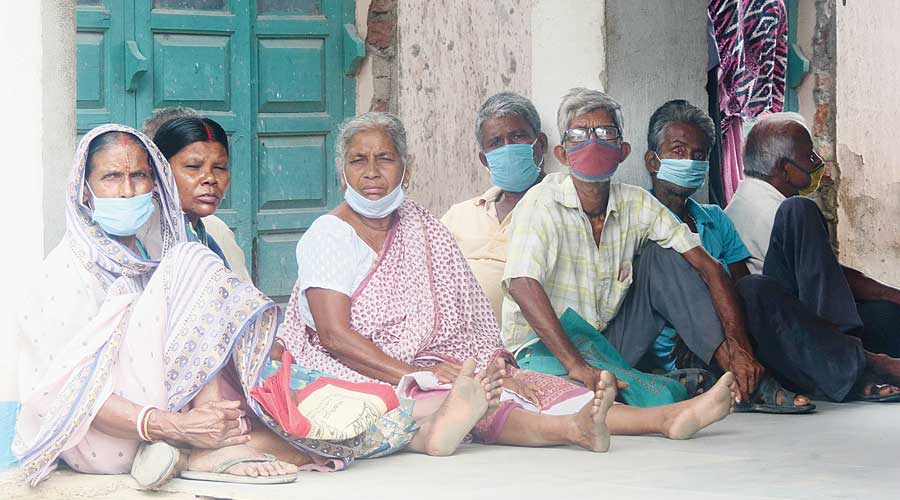Around 40 crore people are still vulnerable to Covid-19 infection as a nationwide survey found two-thirds of the country's population aged above six to have SARS-CoV-2 antibodies, the government said on Tuesday as it stressed there is no room for complacency in the fight against the pandemic.
Findings of the ICMR's 4th national Covid sero survey show there is a ray of hope, but there is no room for complacency and Covid-appropriate behaviour has to be followed, the government said.
The Indian Council of Medical Research (ICMR) conducted the latest survey in June-July.
Addressing a press conference, a senior official said two-thirds or 67.6 per cent of India's population aged above 6 years were found to have SARS-CoV-2 antibodies in the latest national sero survey.
A third of the population did not have SARS-CoV-2 antibodies, which means about 40 crore people are still vulnerable to Covid-19 infection, the official said.
According to the government, 85 per cent of the surveyed healthcare workers had antibodies against SARS-CoV-2 and one-tenth of HCWs were still unvaccinated.
The survey covered 28,975 general population and 7,252 healthcare workers.
The fourth round of the survey was conducted in the 70 districts across 21 states where the previous three rounds had been carried out.
Stressing observance of Covid-19-appropriate behaviour, the government said social, religious and political congregations should be avoided and non-essential travels should be discouraged.
"Travel only if fully vaccinated," it said.
The ICMR also suggested that it would be wise to consider reopening primary schools first as children can handle viral infection much better.
ICMR Director General Balram Bhargava stressed that for such a step to be considered, it must be ensured that school teachers and other support staff members are vaccinated.
Addressing the press conference, he said the Indian Council of Medical Research's (ICMR's) latest national serosurvey has found that the seroprevalence among those aged six to nine was 57.2 per cent which is very similar to adults.
Asked about opening schools since Covid-19 cases have declined in many districts, Bhargava said children can handle viral infection much better than adults and it has also been established that they have a lower number of ace receptors to which virus attaches.
"In some countries, particularly the Scandinavian ones, they (authorities) did not shut down their primary schools during the first, second or third wave... whatever (Covid) waves they had, their primary schools were always open.
"So, once India starts considering opening schools, it will be wise to begin with the primary schools. Also, we have to ensure that all support staff members, be it school bus drivers or teachers, are vaccinated," Bhargava said.
India recorded 30,093 new coronavirus infections, the lowest in 125 days, taking the total tally of Covid-19 cases to 3,11,74,322, according to the Union Health Ministry data updated on Tuesday.
The death toll climbed to 4,14,482 with 374 daily fatalities, the lowest in 111 days, while the active cases have declined to 4,06,130, the lowest in 117 days.










